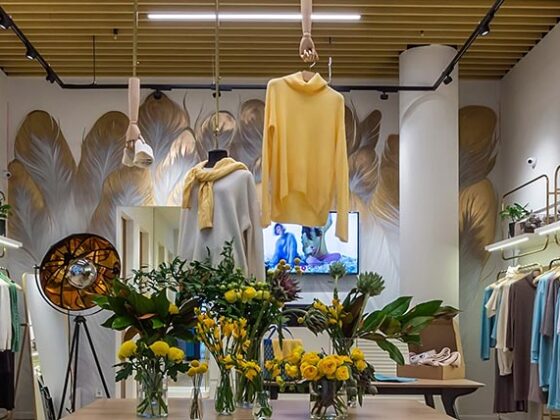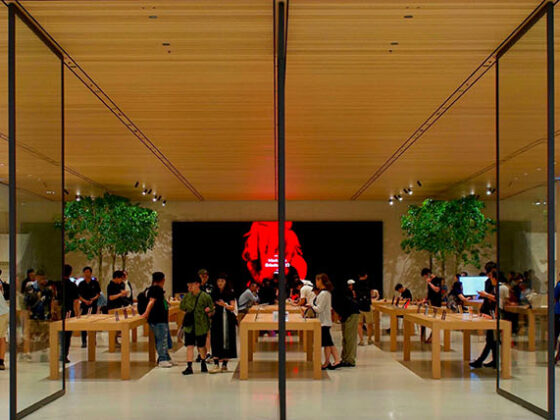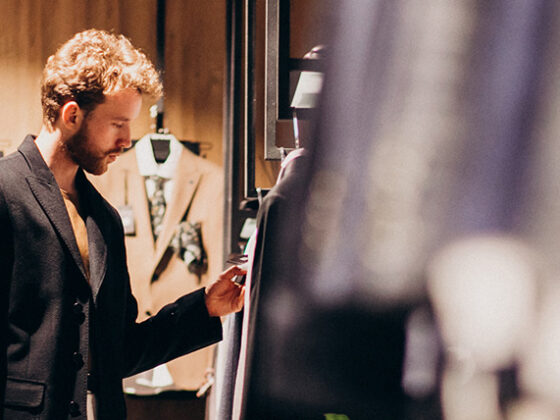Wielding their purchasing power and influence on family shopping decisions, Generation Alpha is setting trends and raising expectations for brands. How are these young consumers driving exciting opportunities for retail brands?
Gen Alpha‘s considerable influence on retail brands and the future of shopping stems from their role in family shopping decisions. While they may not have their own income, their influence on their parents’ purchasing decisions is substantial. Generation Alpha is known to be confident and vocal about their preferences, often influencing the brands their parents choose to buy from. Retail brands that understand and cater to the desires and aspirations of this generation can gain their loyalty and win over their parents as well.
If marketers think Gen Z is the most lucrative consumer group today, then it’s time to think again. Generation Alpha (those born from the mid-early 2010s and still being born until the mid-2020s) is tipped to be the wealthiest, most educated and technologically connected demographic of them all.“ – The Drum
Generation Alpha’s emphasis on sustainability and social responsibility is influencing retail brands to adopt more eco-friendly practices. This generation is conscious of the environmental impact of their consumption and expects brands to prioritize sustainability. Retail brands that demonstrate their commitment to social and environmental causes can resonate with Generation Alpha and earn their loyalty.

Gen Alpha’s Spheres of Retail Influence
Generation Alpha is the first truly digital-native generation, born between 2010 and 2025. The oldest Gen Alphas are barely in their teens, but their influence is already being felt throughout food, fashion, and retail. Their distinct shopping habits—from their access to technology and mostly Millennial parents—set them apart from previous generations.
Growing up with not just smartphones and tablets, but also voice-activated assistants, AI, and social influence as a way of life, they have never known a world without technology. As a result, their expectations for the shopping experience are shaped by the convenience and instant gratification that technology provides. Generation Alpha expects seamless digital experiences, personalized recommendations, and fast delivery. They are quick to adapt to new technology and are comfortable using a variety of devices and platforms to make purchases.
Retail brands need to understand and cater to these preferences to effectively engage with this generation. Let’s look at some brands targeting each of the three distinct Alpha age groups: baby, tween, and teen Alphas.
Baby Alphas: Parent-Driven Influence
For baby Alphas, parents (often Millennials) are buying products that align with their values and concerns while introducing the little tikes to brands and products that may carry forward through several stages of development. These products often represent a form of nostalgia for the parent. They’re also looking for products that are non-toxic, reducing pfas (forever chemicals), biodegradable, plant-based, low sugar, and cross-functional.
Results from recent research indicate that companies spend over $16 billion annually on marketing to tap into young children’s $286 billion influence on adult spending, Simplicity Parenting by Kim John Payne. Payne’s book also highlighted findings that children as young as 2 can recognize brands on shelves and that they have recognition of 300-400 brands by age 10.

Brands to Note
Lalo – Lalo was founded by two dads and appeals to parents who want products that work as hard as they do. Lalo’s primary products include a multifunctional highchair, a table and chair play set, and a baby bathtub, along with a variety of accessories. All the products are manufactured using non-toxic EVA and FDA-approved BPA-free plastics.
Little Spoon – Little Spoon appeals to parents of baby and toddler Alphas by providing them with a new approach to food. Using clean, organic ingredients and age-appropriate balanced nutrition with vegan, gluten-free, dairy-free, and vegetarian options and the goal of creating health habits from the start.
Lovevery – Lovevery creates toys designed to maximize the neurological development of babies and toddlers. The founders wanted “to help parents by giving them the toys and educational information they needed to help foster babies’ development through play and experiences.” The subscription company ships toys (and flash cards with info about how to use the toys with baby) every two months. Then, once baby turns one, the boxes ship every three months with a selection of activities.

Tween Alphas: Kid Influence Gains Momentum
Instead of earmarking pages in a Sears catalog, these kids have their own Amazon Wishlists and a loud voice in determining where their parents shop, what they buy, and where they eat. They value experiences over products, omnichannel experiences and profiles, meta experiences, and customizable products. Legacy brands are working hard to connect with this group and their parents.
“The way most companies look at consumers is ‘well, who’s got disposable income?’ We don’t look at it that way. We look at who is setting the agenda. Who is the future?” – Nike’s CEO, John Donahoe, told Vogue Business.
Brands to Note:
BusyKid – BusyKid is an app designed to help kids learn to budget and understand the value of money early. Kids earn money from their parents by doing chores, or parents can help enterprising tweens launch their own business. The kids get a Visa Spend Card they can use anywhere Visa is accepted, and parents see every transaction made, so kids and teens can learn how to spend wisely.
ToyBox – ToyBox is “empowering the next generation of young and creative minds by making cool technologies easy to use.” Tapping into a generation used to creating their own content, ToyBox gives kids the chance put together their own toys on the site, which are then 3D printed and shipped to them.
Ziggy Zaza – Ziggy Zaza is an Australian-based fashion retailer that ships worldwide. The sustainable and environmentally conscious brand is “inspired by art, adventure and the wild and wonderful imagination of our children.”

Teen Alphas: Collaborative Purchasing
Throughout history, teens have been an influential consumer group. Remember Beatlemania? When brands can tap into that teen spirit and connect authentically with their target market, they can win big. Just ask billionaire Kylie Jenner, whose cosmetics empire markets directly to the teen girl demographic on social media.
Teen Alphas are influencers who not only have their own spending money, but also collaborate with their parents in making retail decisions, with a larger-than-expected voice in collaborative purchasing and family shopping.

Brands to Note
Roblox – Roblox is a social gaming platform with more than 52 million users, most of whom are under the age of 17. The app lets users play and create games, chat with others online and earn and spend virtual money. The platform also hosts live events like in-game concerts.
Hanna Andersson – Hanna Andersson targets the Alpha generation from infant through age 14 by offering sustainable, organic clothing made for play, with a focus on social responsibility, diversity, and inclusion.
Johnny – Johnny footwear is a Kickstarter company that was successfully funded and features the world’s first shoe that rapidly biodegrades underground and grows into an apple tree.
Harnessing their unparalleled command of technology, these digital natives are orchestrating a transformation in retail, unlike any seen in previous generations. As the cohort continues to grow up, retailers have an opportunity not just to adapt, but to flourish.
Kids aren’t the only ones with buying power these days; the pet retail economy is booming. Read more: https://consultasg.com/the-pet-retail-economy/




